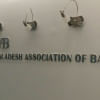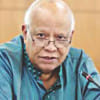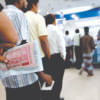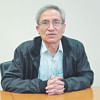Bank savers can smile again
Though the recent rise in interest rates has become a bane for borrowers, it is a boon for savers, especially for retirees and others who live off their savings.
The rate hike was a side-effect of a Bangladesh Bank policy meant to push down the loan-deposit ratio to 83.5 percent by June from 85 percent.
Over a dozen banks with higher LDR are now scuppering for deposits to bring down their ratio, and in the process, have pushed up the interest rates on deposits by two percentage points to 9 percent.
Some troubled institutions, which are in acute liquidity crisis, are offering double digit rates for deposits.
"Thanks to the rate hike, now I will get a return that is higher than the inflation rate," said Harunur Rashid, who retired from government service two years ago.
Rashid wanted to park all his retirement benefits at government savings schemes, but he managed to invest only 25 percent.
Dejected, he then deposited his remaining amount at a private commercial bank for 6 percent interest rate -- which was lower than the inflation then.
The interest rate had been on a descent since January 2015 -- when the weighted average deposit rate was 7.26 percent. In July 2017, it stood at 4.8 percent.
The low returns on deposits have discouraged savers to put their money in banks. Deposits grew by less than 9 percent in 2017 against more than 18 percent private sector credit growth, according to data from the Bangladesh Bank.
But the sudden liquidity crisis that began in December last year has bucked the downward trend and in the last two months the rate started looking up, again.
A third-generation private bank now offers 9 percent for a 3-month tenure deposit of Tk 5 crore or above, up from just 5.25 percent two months ago.
For deposits of up to Tk 25 lakh, the bank now gives 8 percent return, which was just 5 percent in November last year.
Similarly, a second generation private bank offers 7.5 percent for deposit, up by 2 percentage points two months ago. Another side-effect of the banks' desperate hunt for deposits is that the non-bank financial institutions, which are reliant on banks for funds, are in a severe liquidity crisis.
Some of the NBFIs are offering 10 percent or more to attract deposits and yet they are not succeeding due to their image crisis.
"Savers are happy as they are being benefitted from the latest rate hike," said Khalilur Rahman, managing director of National Housing and Finance. "There is no new deposit in the market," said Abdul Halim Chowdhury, managing director of Pubali Bank, the largest private bank in terms of branch network.
Basically, banks are prowling to take away other banks' depositors by offering hefty return.
"I was compelled to hike the rate to 8 percent. Otherwise, deposits from my bank will go to other banks," he added.
Shafiqul Alam, managing director of Jamuna Bank, however, does not envisage the pensioners rushing to cash in their savings certificates to deposit the sum in banks. "Savings certificates are a good avenue -- they give 11 percent plus return, which is much higher than what the banks offer."
But the problem of savings scheme is that it is a long-term investment and beneficiaries cannot encash it as per their wish, he said.
"A cut in interest rate on saving tools will help banks get deposits."

 For all latest news, follow The Daily Star's Google News channel.
For all latest news, follow The Daily Star's Google News channel. 








Comments